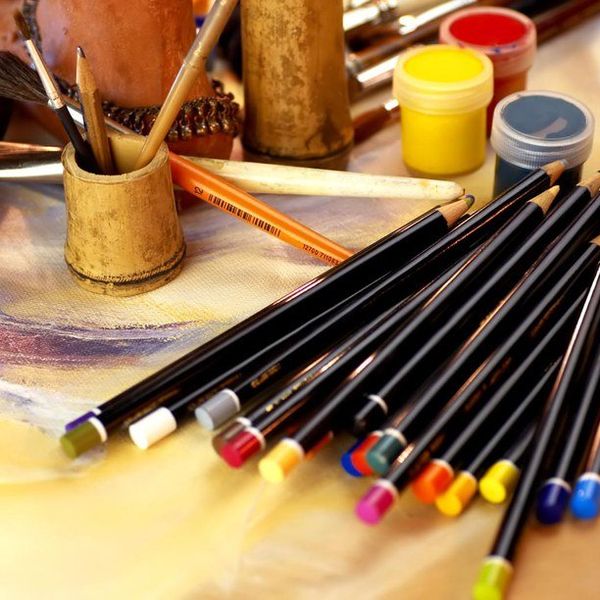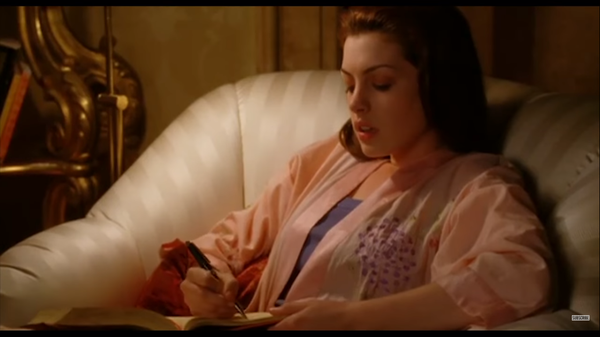There is a line in Elizabeth Gilbert’s book "Big Magic: Creative Living Beyond Fear" that flew out at me:
“If I am not actively creating something, then I am probably actively destroying something.”
The ‘tortured artist’ is a widely known concept, and self destruction is something very prevalent amongst artists.
This idea made me raise the question of: Which came first: The creativity or the self destruction?
In creative communities we often see a certain artistic value granted to artwork that is based on the amount of suffering put into the making of it. Unless there was emotional vulnerability involved in the creation then it isn’t significant or considered “real art."
Pain can so easily be romanticized and falsely (and dangerously) associated with creativity.
“Feelings of desperation and unhappiness are more useful to an artist than the feeling of contentment,” Gilbert writes. “Desperation and unhappiness stretch your whole sensibility.
An artist might cling to suffering for the sheer worry of losing inspiration or access to their creative triggers. But it can be very dangerous to trust in darkness alone, accepting that the the best art is nourished by dysfunction. It can become a crutch.
Denying happiness or feeling guilty for reaching satisfaction can cause a lot of inspiration to go to waste.
Elizabeth Gilbert gives an example of a time where a woman she knew had an idea for a novel that she was very excited about. She put off writing it for years because of her hesitation from her personal criticism that it wasn’t ‘serious’ enough, that she hadn’t ‘suffered enough’ to write this story.
“She didn’t trust in the legitimacy of her own anticipated pleasure,” Gilbert explains.
I’ve come to see that so often, art is resorted to as a form of therapy.
There are those that self medicate with the help of their creativity.
Therefore, an association is falsely made between mania and talent.
There are severely mentally disabled people who have been able to express their ideas through creativity. But there are just as many people out there that do not possess these creative drives or talents.
We can see that there is definitely a correlation, but we can’t assume causation.
“So to automatically conflate madness with genius feels like a logical fallacy to me,” states Gilbert.
Self destruction is not a choice. It does not cause creativity, nor does it necessarily enhance it.
And to think that emulating great artists and their addictions will advance you in your creative experience is just insensitive and irresponsible. It contributes to the desensitizing of mental illness, causing those who are actually suffering to become overlooked.
One of the most important separations that Elizabeth Gilbert writes is that, “Addiction doesn’t make an artist ... any artist dealing with addiction is an artist DESPITE their addiction.”
And coming at it from the other direction, it’s important that self destruction is not just dismissed as commitment to the craft. Because any relationship, particularly one to creative work, can become abusive. That becomes a force of self destruction of its own.
I’m not saying that any person should be granted permission to be cruel or harmful.
But art made out of anger serves a different purpose than art made to anger.
As a student pursuing a career in a creative field, I’m continually faced with the condescending implication of “You haven’t suffered enough in your life to make anything meaningful.”
Elizabeth Gilbert’s presents a great point that I think can help in response to the previous question that was posed. “When did creativity become a suffering contest?”
It’s unfair to assess an artist’s work based on their painful external situations. A person should never have to continually feel the need to prove themselves, and it’s immoral to demand a person to validate their pain.
So much amazing artwork has been produced as a result of suffering, but not all artistic genius can be attributed to it. It’s a relatively healthy outlet, but it must be kept in mind that it isn’t necessary for innovation.




















